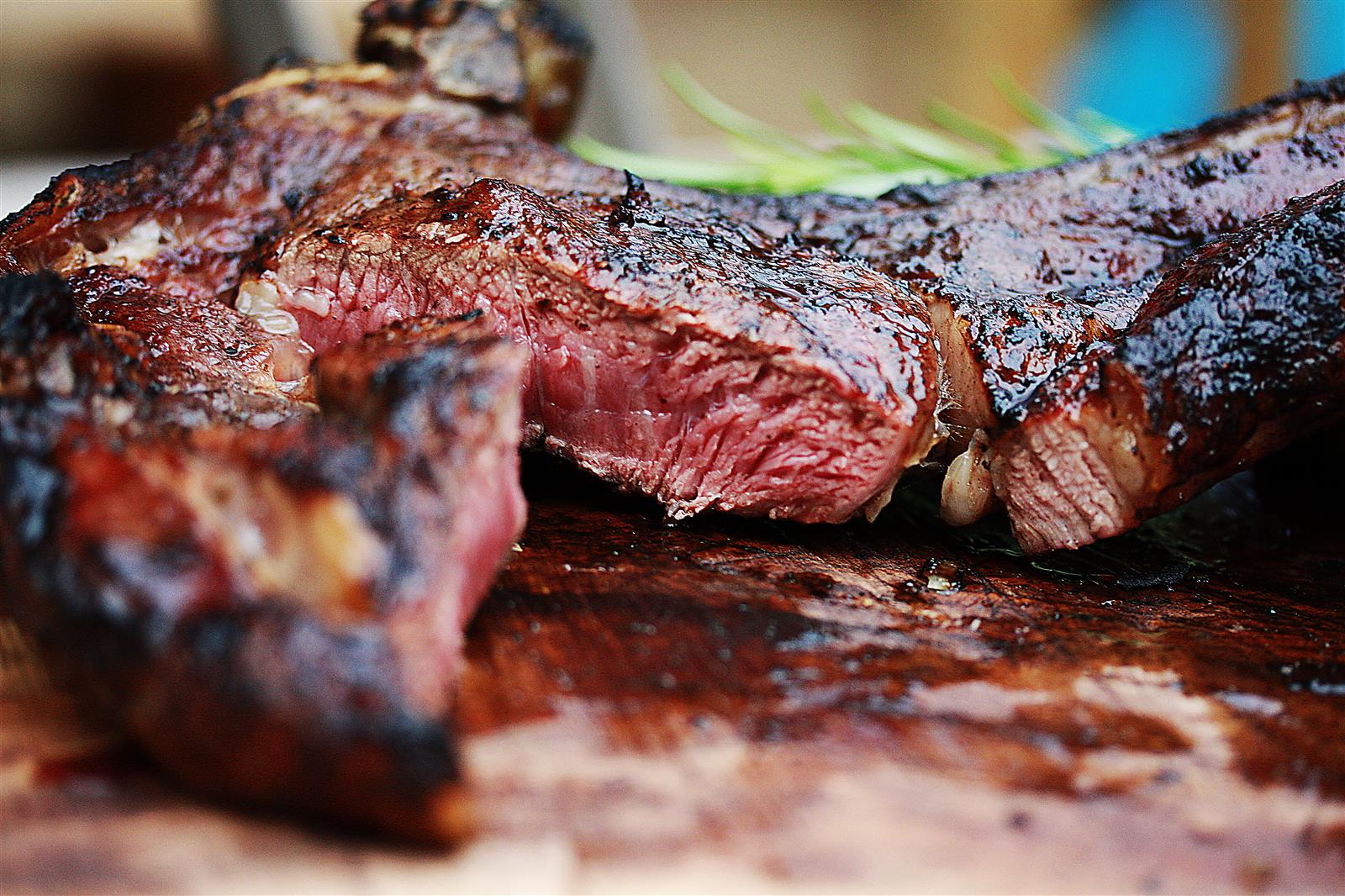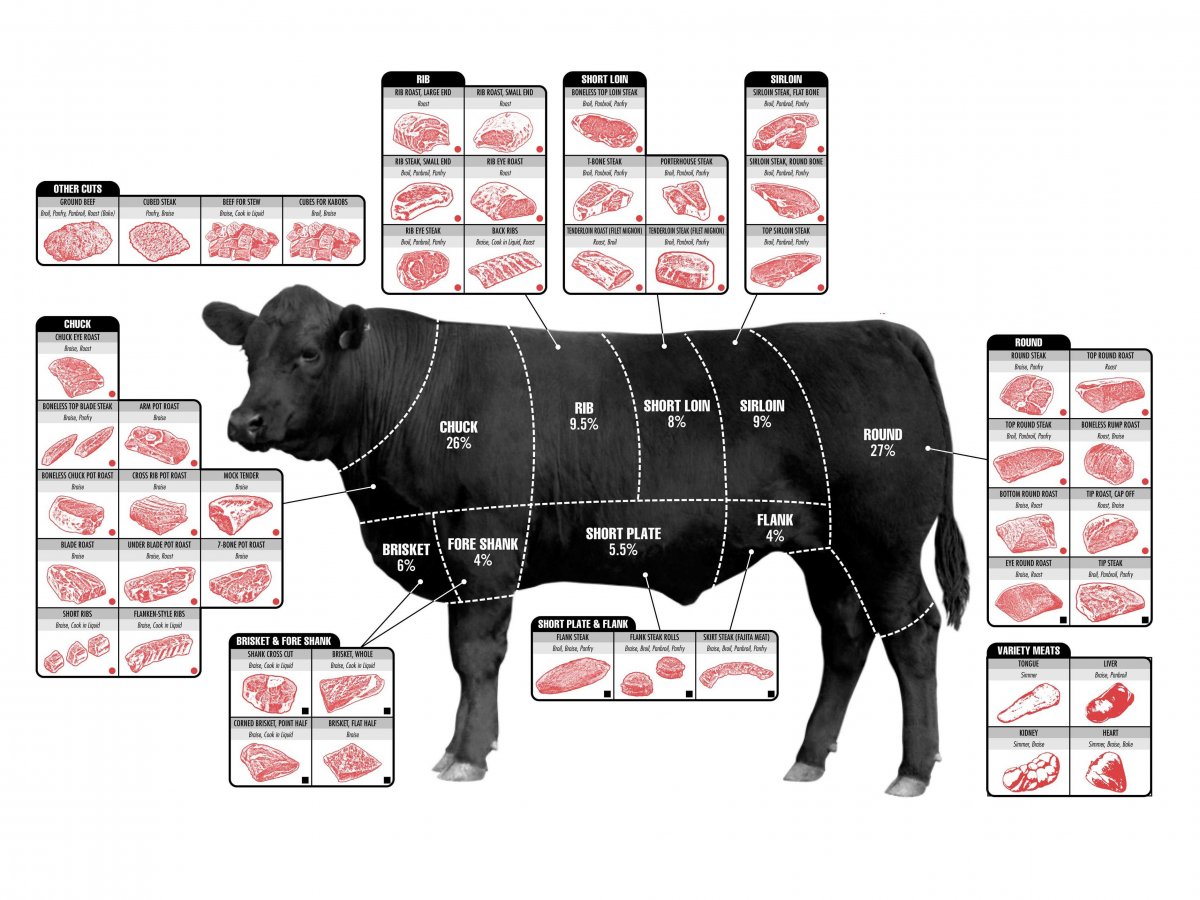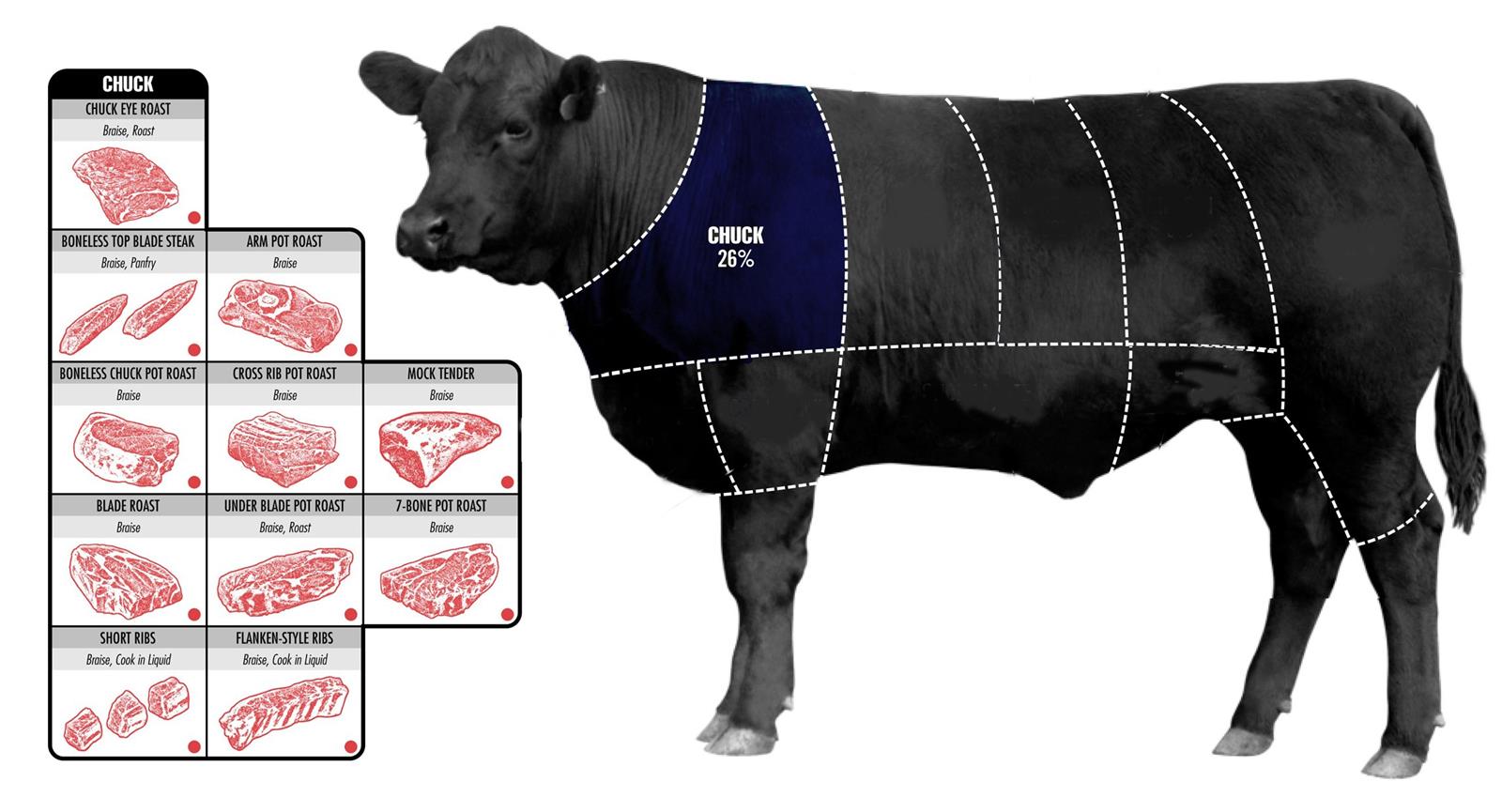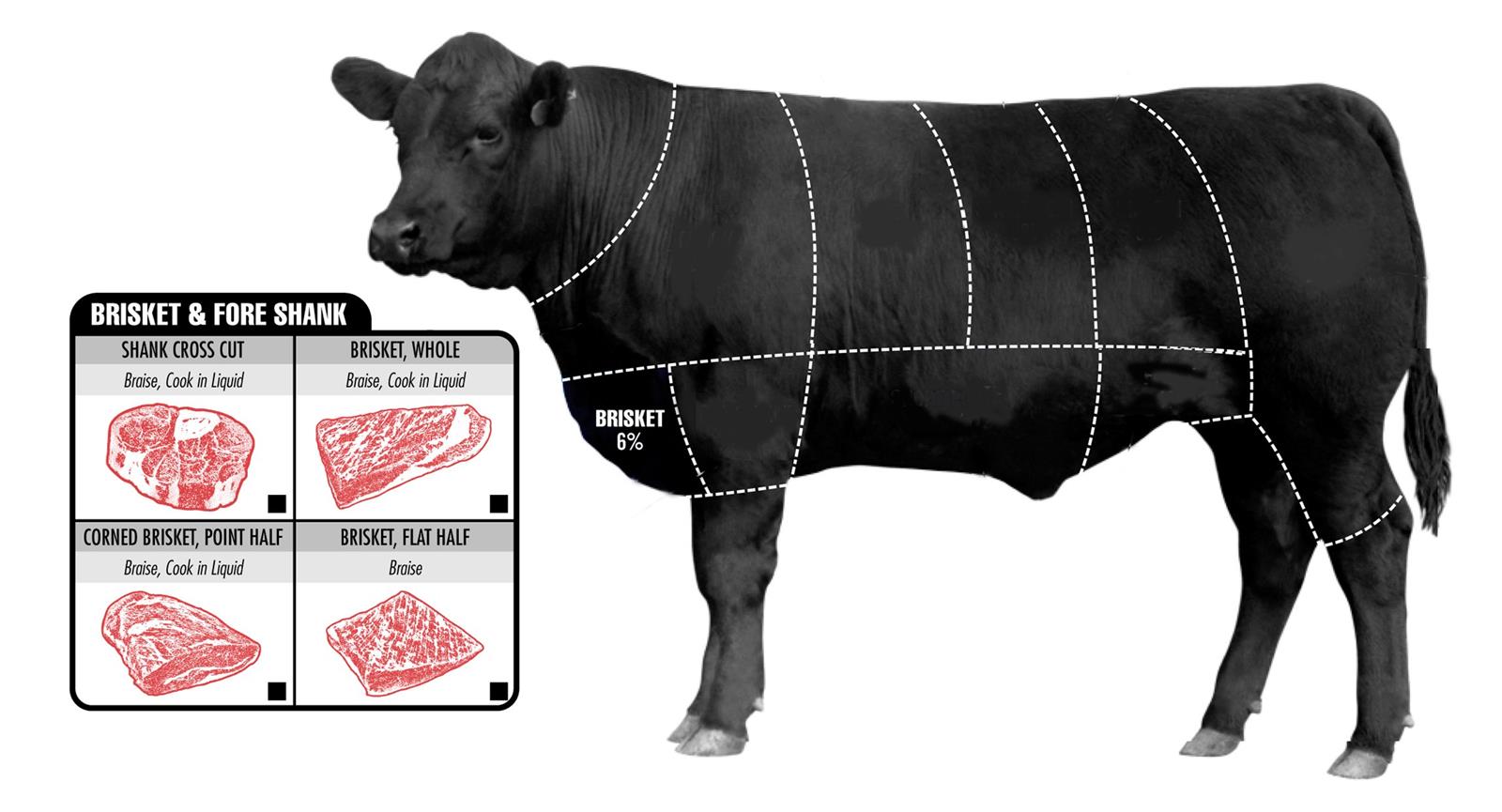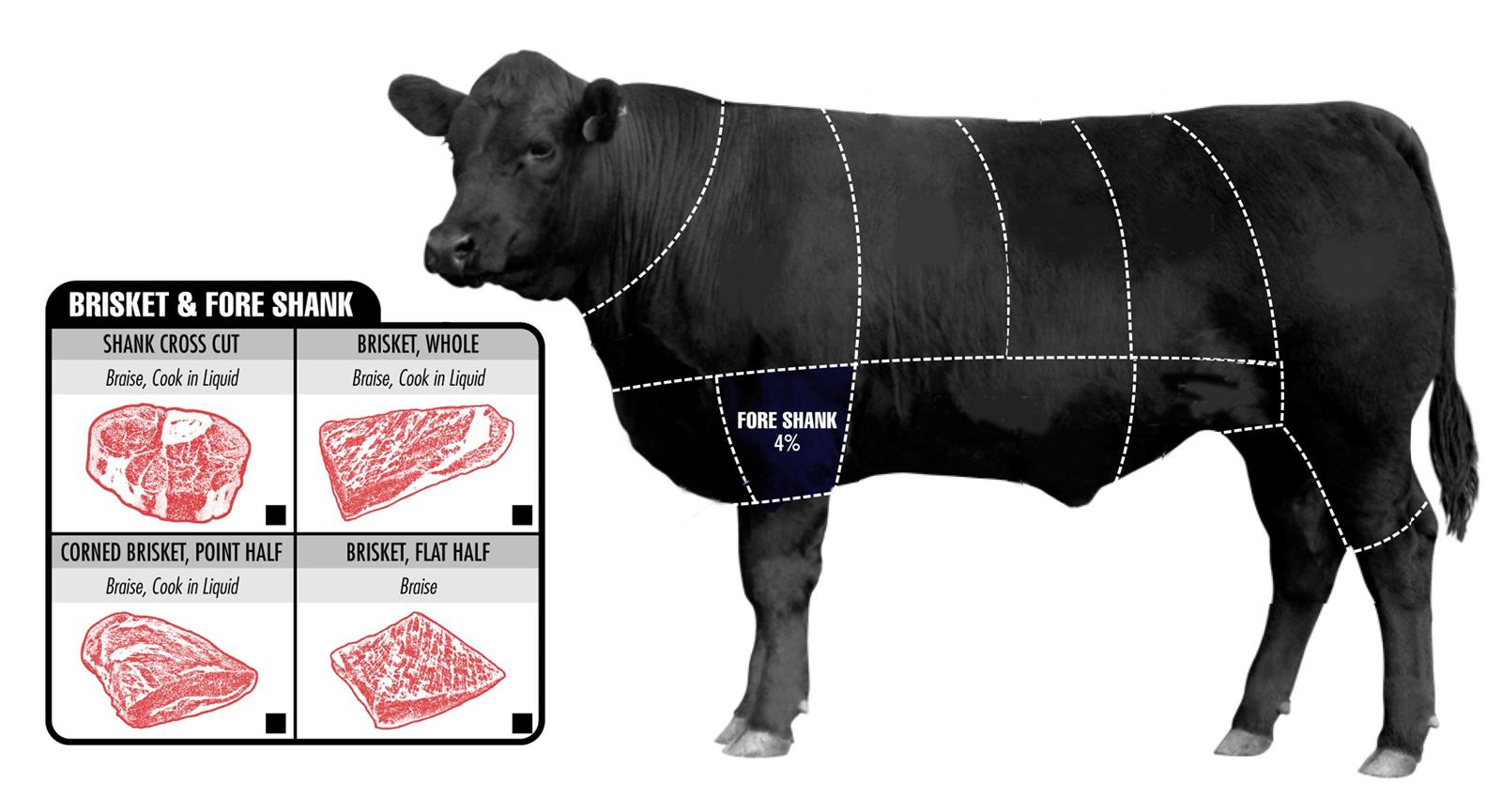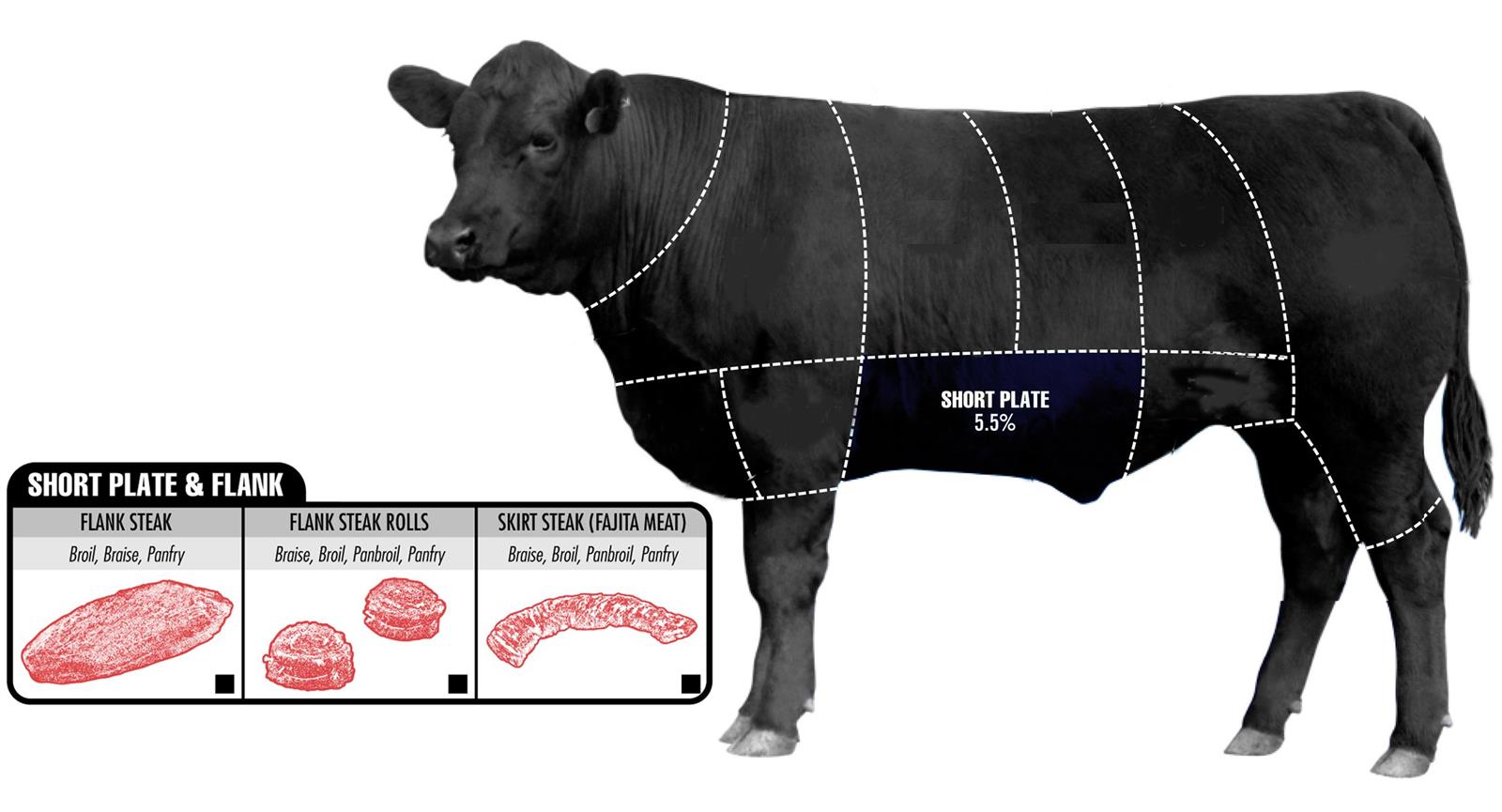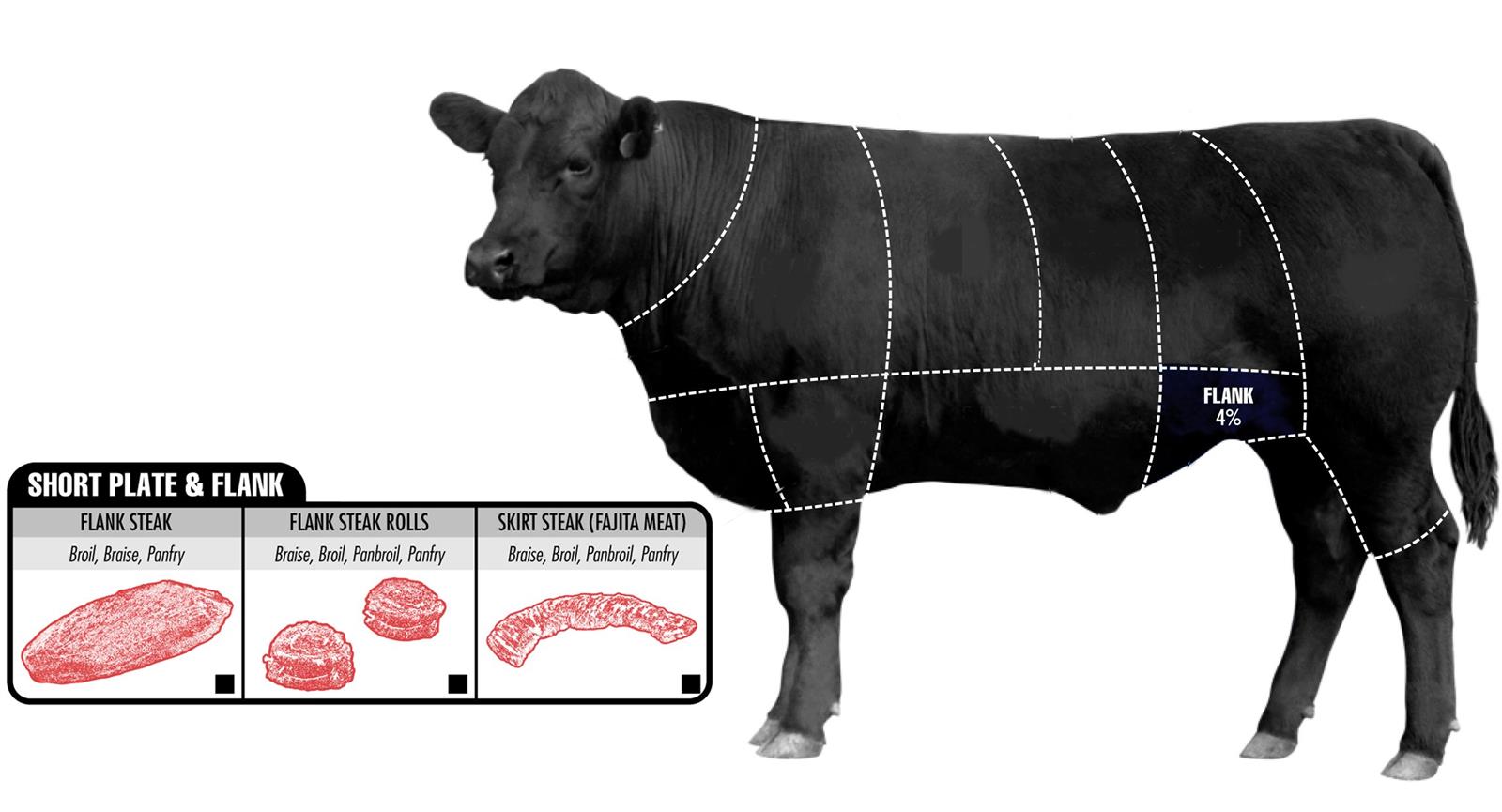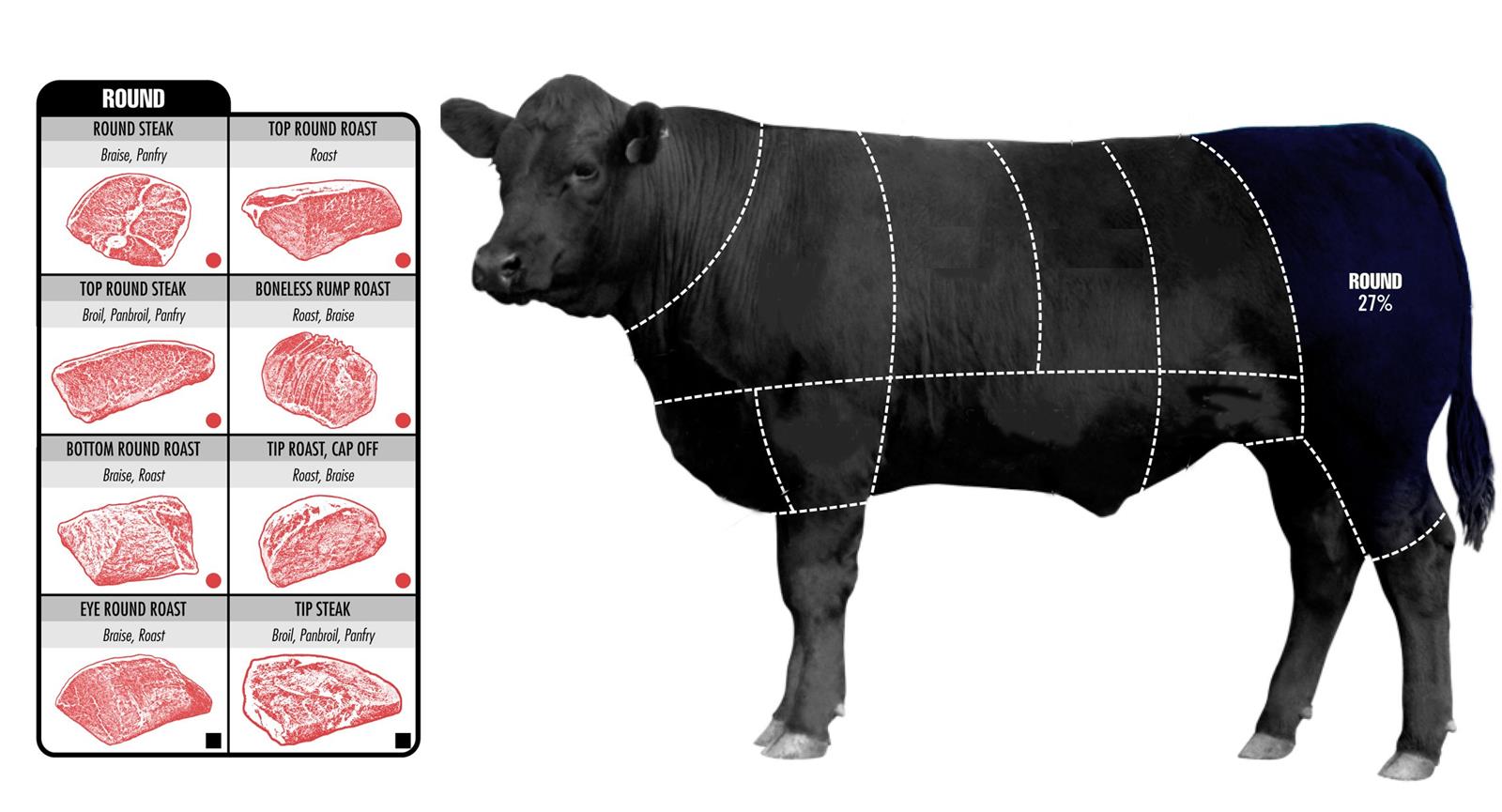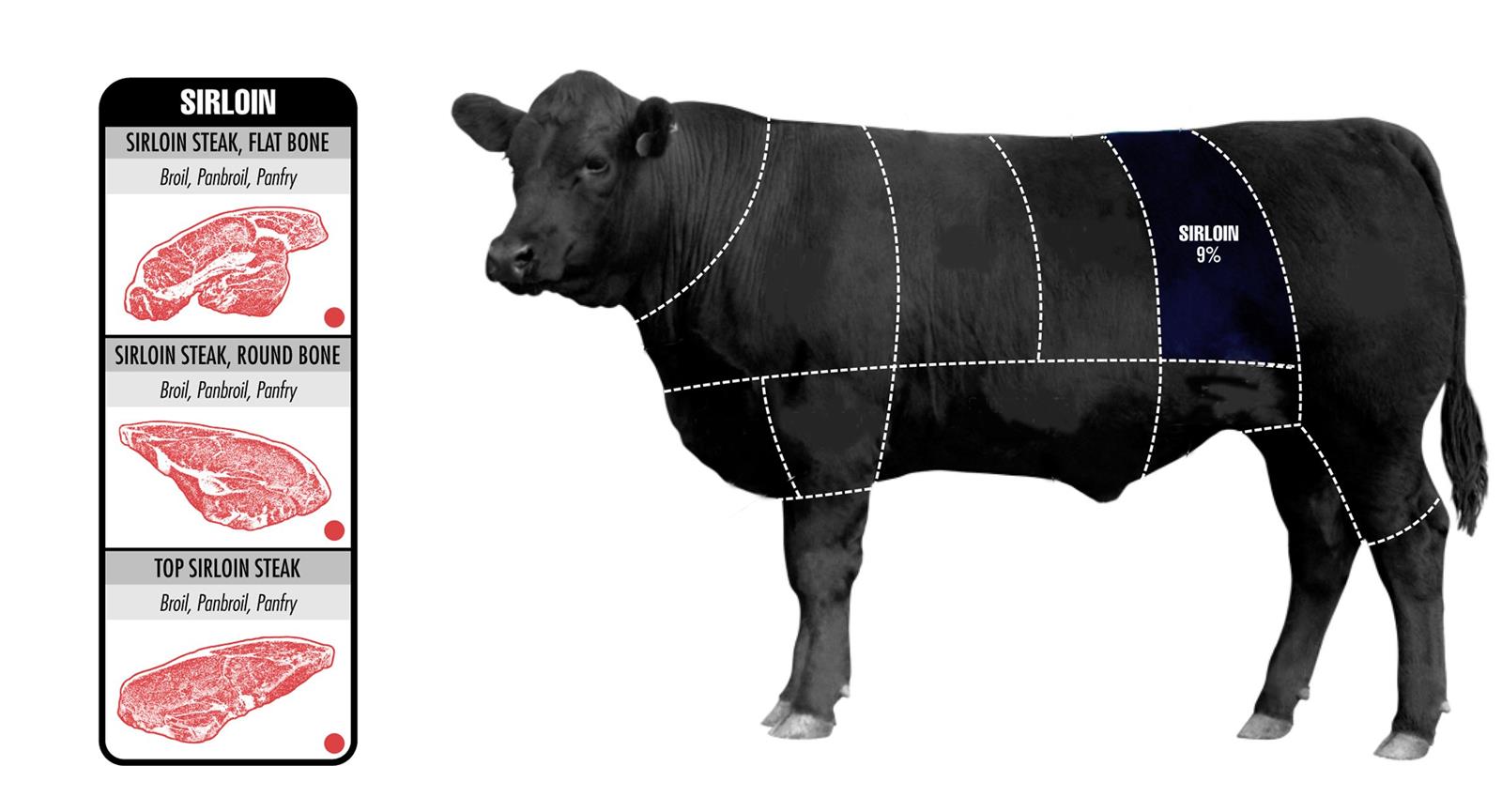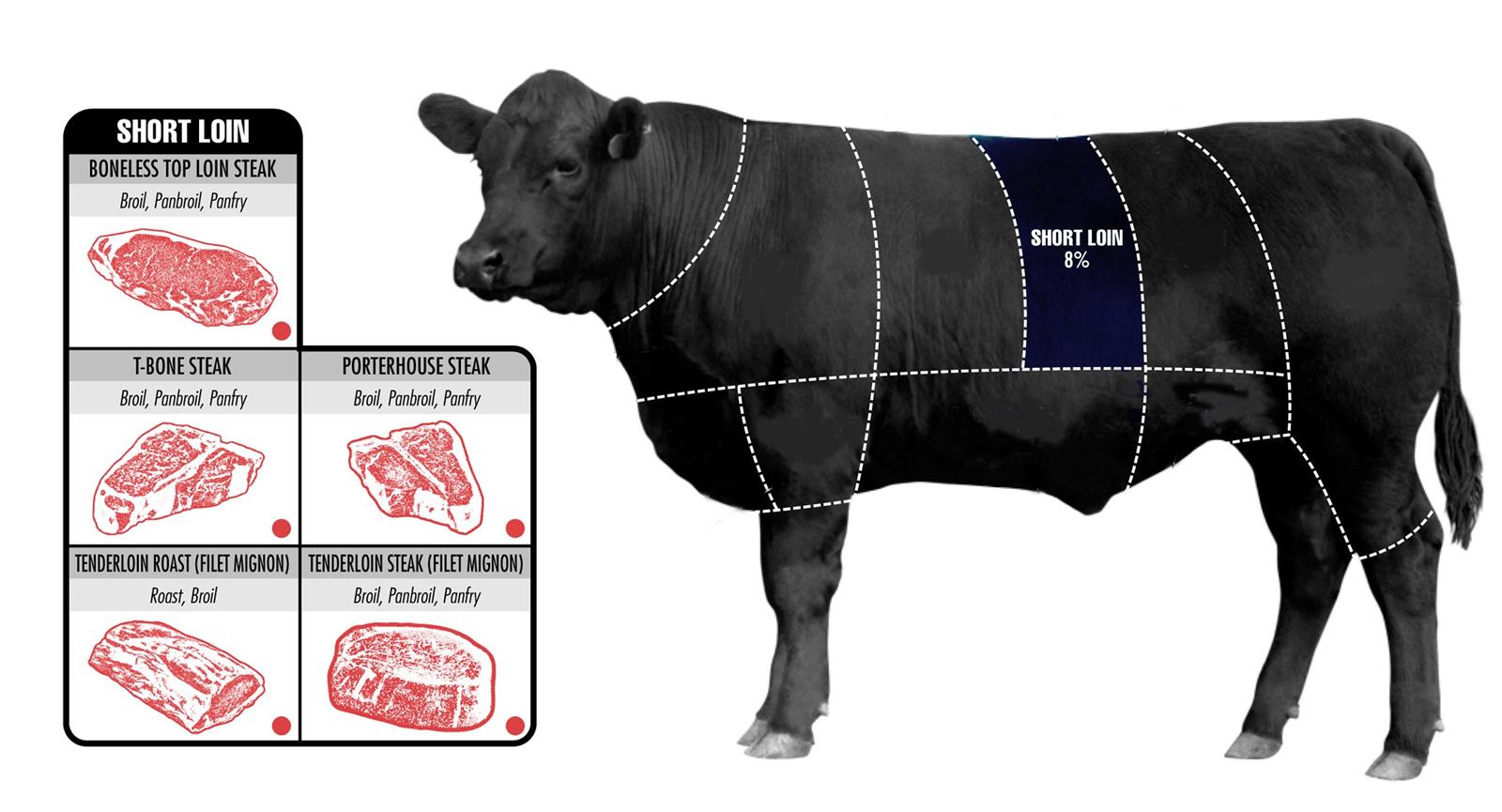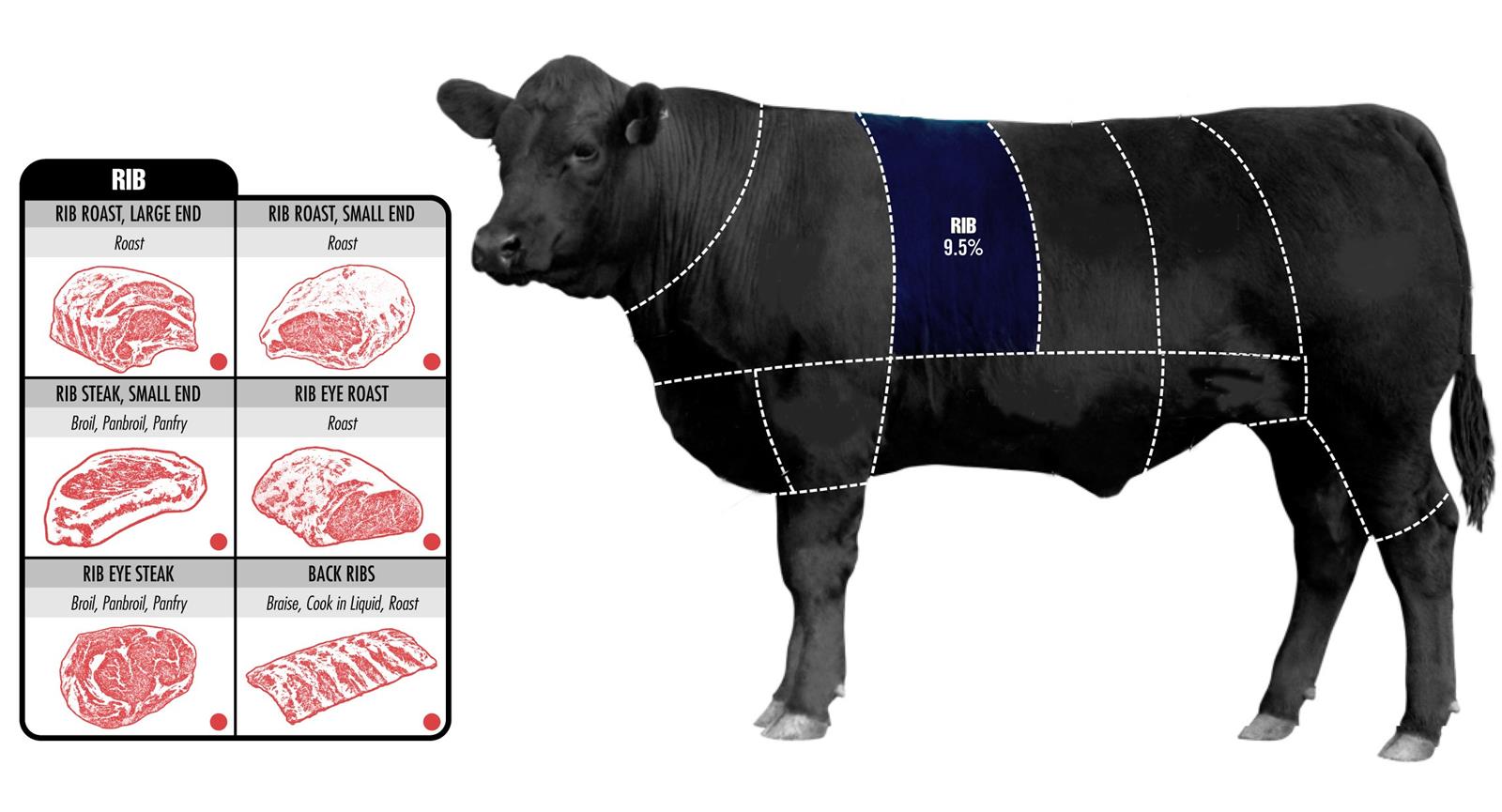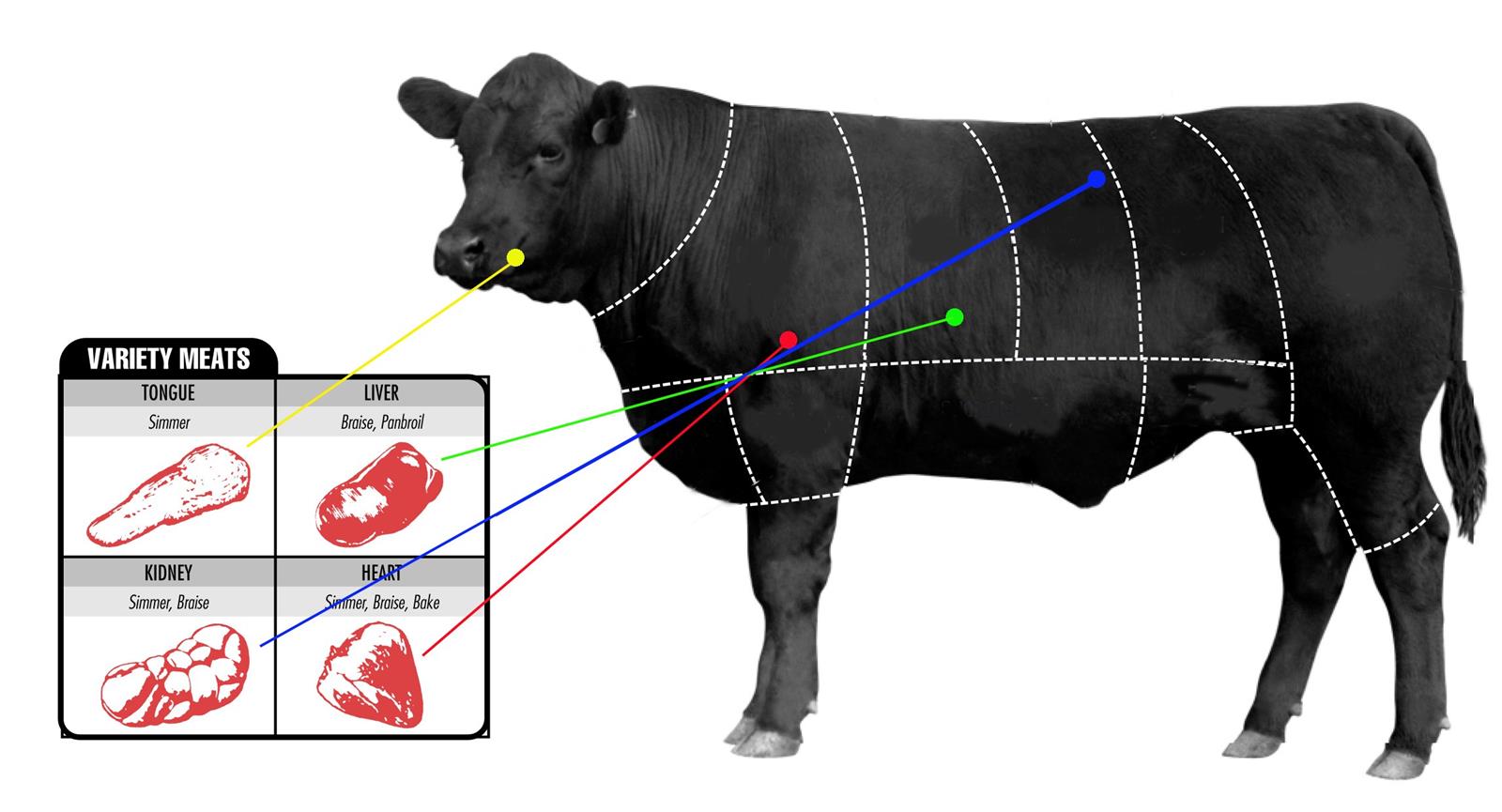Beef has been and always will be what’s for dinner.
Porterhouses, filet mignon, and strip steaks are staples on restaurant menus and in grocery aisles. But there are some lesser-known cuts that are just as tasty and often less expensive.
Find out more about the major cuts of beef, and the best ways to prepare them in this beef breakdown.
CHUCK: Blade Steak, Eye Steak, Arm Roast, Blade Roast, Short Ribs, Flatiron Steak, 7-Bone Roast
The chuck contains connective tissue (including fat and collagen) which partially melts during cooking. The meat is prepared by stewing, slow cooking, braising, or pot roasting to make the meat tender.
Chuck is also commonly made into ground beef (for hamburgers, meatballs, etc.), and is one of the more economical cuts available.
BRISKET: Whole Brisket, Front Cut, First Cut
Made from the breast or lower chest of the cow, brisket is a tough beef cut that is prepared by braising or slow smoking.
It is also commonly cured and made into pastrami or corned beef.
FORE SHANK: Shank Cross Cut
Taken from the upper leg of cattle, the fore shank is tough, dry, and sinewy. The meat is commonly cooked in moist heat or used to create beef stock.
Since not many people buy beef shank, it’s not typically found in stores as anything other than low-fat ground beef. It is fairly cheap in butcher shops though, and an ideal cut for beef Bourguignon.
SHORT PLATE: Skirt Steak, Plate Short Ribs
Plate cuts are from the underbelly of the cow, and are made of tough, fatty meat — usually from the cow’s diaphragm.
In addition to being cheap, plate cuts are extremely flavorful and are often marinated before grilling or pan-searing to add moisture. They’re typically used in stir fry or fajitas.
FLANK: Flank Steak, Flank Steak Rolls
Flank steak is from the abdominal muscles of the cow. Because it can be tough, the cuts are grilled, pan-fried, broiled, or braised for tenderness, and are often marinated as well.
Like plate cuts, flank steak is common in stir fry and often used in Asian cuisine.
ROUND: Round Steak, Round Roast, Rump Roast, Tip Steak, Tip Roast
Round cuts are taken from the leg and backside of the cow. Because there’s minimal fat marbling, many chefs make burgers or sausages from the inexpensive beef.
It can also be slow cooked in moist heat (like braising), or sliced thin and dried/smoked at a low temperature to make jerky.
SIRLOIN: Sirloin Steak (Flat Bone/Round Bone), Top Sirloin Steak, Tri-Tip Roast
Sirloin cuts make sirloin steaks or tri-tip roasts/steaks (commonly called “culotte”), which are chewy, but very flavorful. They’re found near the rear end of the cow and are a great value.
Sirloin cuts are often labeled by the bone they contain: Flat, round, wedge, or pin.
SHORT LOIN: Top Loin Steak, T-Bone Steak, Porterhouse Steak, Filet Mignon
The short loin cut of beef has the most popular cuts around, including porterhouse, T-bone, New York strip, and filet mignon.
The short loin contains part of the spine, and is located immediately behind the ribs. The cuts are extremely tender and best for grilling or pan searing.
RIB: Rib Roast, Rib Steak, Rib Eye Steak, Rib Eye Roast, Back Ribs
Ribs are generously marbled, so they have an extremely tender, fall-off-the-bone texture and full-bodied flavor.
Smaller cuts like rib-eye steak are best for grilling and pan frying, large cuts like standing rib roasts are good for roasting, and short ribs are best braised.
VARIETY CUTS: Tongue, Liver, Kidney, Heart
Not for the squeamish, beef tongue, liver, kidney, and heart are common cuts to find in butcher chops, too. Tongue is fatty, usually boiled, and common in many types of cuisines including Mexican, Indian, Portuguese, Brazilian.
Calf livers are considered a delicacy around the world, and can be baked, boiled, broiled, fried, stir-fried, or eaten raw.
Though almost no one eats beef kidneys in the US, they are low in fat and high in protein. Typically, they’re used in stews or served rare.
And beef heart was once a common meat for the poor, but because it’s so lean and flavorful it’s now coming back into the mainstream. It can be simmered, baked, or braised.
Knowing the best way to prepare each cut of beef does make cooking easier and a dish more enjoyable. Share this useful article with anyone you know that enjoys a good slab of beef.
